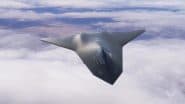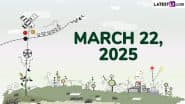New York, Feb 25 (AFP) There is no China Pavilion at this year's Toy Fair owing to the new coronavirus outbreak, and the travails of the world's second-biggest economy hang over the giant trade show.
Output in China -- by far the world's biggest maker of toys -- has slowed to a trickle as the country reels from a public health crisis that has already claimed nearly 2,600 lives and spread to dozens of countries, raising fears of a global pandemic.
As some 25,000 toy industry officials gather this week in New York for the largest toy show in the Americas held amongst a sea of stuffed animals, electronics and action figures, attendees are grappling with a considerably less cheerful topic: a deadly health crisis and its effect on the world's leading maker of consumer goods.
The hit has been mitigated somewhat for toys because it is taking place during a seasonal lull and not closer to the holiday shopping period, toy executives say.
Still, there is widespread worry and talk of item shortages as soon as this summer.
China manufactures about 85 percent of US toys, according to industry officials.
The virus "is going to have a major, major effect worldwide," said Isaac Larian, chief executive of MGA Entertainment, adding that he is currently drawing from about two months of inventory for his company's best-selling "LOL Surprise" dolls.
MGA depends on China for more than 85 percent of its production. The company's factories in the country are operating at only about 20 percent capacity, with many workers still away and other activity stymied by shortages of raw materials or transportation bottlenecks, Larian said.
In his 41 years in the toy industry, the hit from the virus to supply chain is "the worst thing I've seen," Larian said.
Aaron Muderick, founder of Crazy Aaron's Puttyworld, which produces a range of colorful, malleable slime dubbed "thinking putty," some of which glow in the dark, said the virus was "probably the number one topic of conversation because there's so much uncertainty." Muderick is one of the few US toymakers who manufacture exclusively in the United States, but he is still anxious about the outbreak.
"Even if we're able to supply product, if a store has empty shelves, it's not good for anybody," he said in an interview.
The Chinese industry itself is normally a major presence at the show, with dozens of booths that are typically cloistered together on an upper floor of the Jacob Javits Convention Center.
But the Toy Association cancelled the China Pavilion a few weeks ahead of the show, resulting in the loss of 47 exhibitors and about 550 attendees, said Steve Pasierb, president of the trade group.
Overall attendance is still on pace because the show has seen an uptick in registrants who normally attend Chinese trade shows that have been cancelled, Pasierb said.
The trade group has heard from toymakers who produce in India, Malaysia and other nearby markets that are having trouble because of lack of raw materials from China.
Another worry is that toymakers will have to compete with other consumer products on "clogged" shipping lines when the crisis clears, Pasierb
said.
"We're still kind of in that window where it's not a crisis yet," Pasierb said. "If we're still having this conversation in April, it's going to be a problem." At WowWee, whose products include plush toys and robotics, the outbreak has delayed ramp-up activities for new toys, such as prepping tools and product testing, because engineers aren't able to travel to factories from Hong Kong and plants in China are staffed at 50 percent or less.
"We've lost a couple of weeks that normally would be full-speed ahead," said Davin Sufer, chief technology officer at WowWee, adding that launches should still be able to meet deadlines if the outages lift soon.
"It's still workable" at this point, Sufer said.
The impact on Funrise has been mitigated by the nature of the California toymaker's manufacturing footprint, which is mostly in Vietnam.
But the company's "Farting Ninja" line depends on electronic components from China that are currently being drawn from inventory.
There are also concerns about new play trucks targeted for release this summer but made in Chinese factories that are shut, said Justin Mills-Orcutt, a marketing manager.
Magformers, which makes magnet toys that are assembled into dinosaurs and vehicles, is in an even tighter spot: it depends on China for 100 percent of its production and only has about one third of its workers back on the job.
"It's going to affect us greatly," said Chief Executive Chris Tidwell, who fears "big" out-of-stock shelves this summer.
"It's going to be a tough year -- there's no way it can't be." (AFP)
(This is an unedited and auto-generated story from Syndicated News feed, LatestLY Staff may not have modified or edited the content body)













 Quickly
Quickly





















